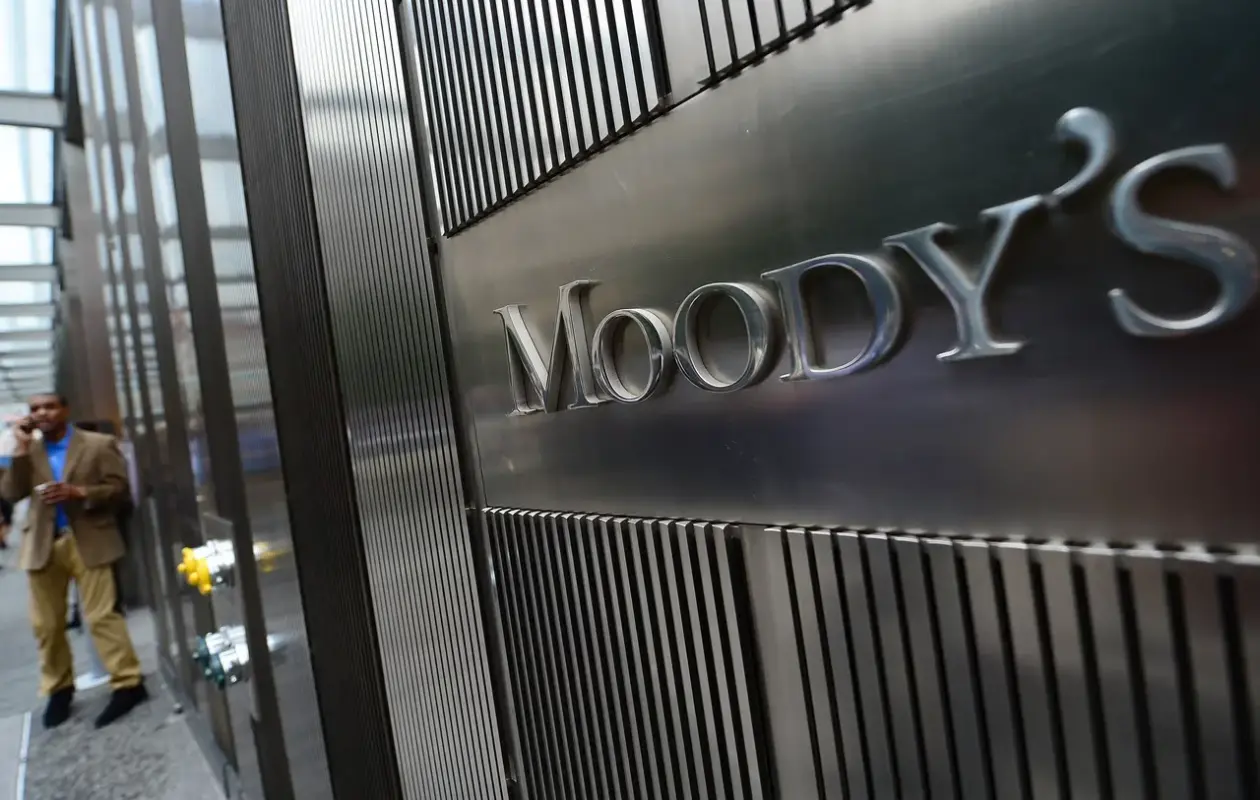
En pleine discussion budgétaire, Moody's rend son jugement sur la France
The rating agency Moody's will deliver its seasonal verdict on France on Friday, and a downgrade, or at least a lowering of the outlook, appears likely.
Moody's will be the fourth in a month and a half to assess France's sovereign rating, and the other three have already lowered it by one notch.
Fitch downgraded the French rating from AA- (investment grade) to A+ (upper-medium investment grade) on September 12. S&P Global did the same last Friday. Morningstar DBRS also downgraded the French rating in September.
All highlight the political instability since the dissolution, which weighs on public finances and partially paralyzes two growth engines, household consumption - their savings rate reaching 18.9% of their income in the second quarter - and investments, which fell in 2024 by 5.6% for households, according to INSEE, and by 2.4% for businesses.
Growth is now expected by the government at 0.7% this year, and 1% in 2026.
With an Aa3 rating with a stable outlook, Moody's is now a notch above its main competitors, S&P and Fitch.
In April, Moody's indicated that "backsliding on reforms such as (...) pension reform" was a criterion for a rating downgrade.
However, the government has just granted the opposition a suspension of this reform, in the hope of saving its budget in Parliament.
Moreover, the growth prospects of the French economy "have deteriorated considerably," points out Éric Dor, director of economic studies at the IESEG School of Management, since the latest estimates from Moody's, which last December predicted growth of 1% in 2025 and 1.4% in 2026.
"We have the highest public deficit in the eurozone (5.4% of GDP forecast in 2025), the largest public debt in terms of mass at nearly 3.5 trillion euros, the third in the zone as a percentage of GDP (behind Greece and Italy) at 118% next year," Pierre Moscovici, first president of the Court of Auditors and president of the High Council of Public Finances (HCFP), listed on RTL on Wednesday.
"Things are not going well at all," he said, raising the risk of a "problem of debt sustainability" in France.
He also mentioned France's "credibility problem" on the markets, where it pays "more for its money than Spain, Ireland, Greece," three countries that were in great difficulty during the subprime crisis but which have recovered.
According to Paul Chollet, chief economist at Crédit Mutuel Arkéa's trading room, "the markets are currently treating French debt at an A or A- rating."
Mr. Dor said it would be "quite logical" for Moody's to downgrade France's rating. Simply lowering the outlook "would be less easy to explain," and keeping the rating and outlook unchanged would lead to "a significant loss of credibility" for Moody's, he said.
Mr. Chollet is instead banking on a simple downgrade of the outlook, as Moody's has, unlike other agencies in recent weeks, "a government that can last for some time, (especially) if a budget were to be voted on December 31."
Pierre Moscovici emphasizes that next year's public deficit must be "very clearly below 5%" of GDP, to maintain the trajectory promised to Brussels of a return to below 3% in 2029.
The first budget discussions are moving away from this. The National Assembly's Finance Committee rejected the revenue portion of the draft Finance Bill on Wednesday night.
But before that, she had lightened the text by 7 billion euros in taxes, forcing a reduction in the expenditure part so as not to worsen the government's objective of a public deficit of 4.7% of GDP next year.
This rejection also heralds difficult budget debates for the government in the chamber, starting on Friday.
Commentaires (3)
Espérons que Moody's va oser révéler la note de la France qu'il avait mise sous le coude.
Ces agences de notations sont les spécialistes de notations spéculatives en direction de l'Afrique. Ces notations permettent à des spéculateurs d'imposer aux emprunteurs africains des taux d'intérêt qui en font des esclaves de l'économie mondiale dans un cercle vicieux de payer des dettes sans pouvoir accumuler les ressources nécessaires à leur développement.
Un exemple de note de complaisance un pays européen: dette PIB 115, 6% est noté de AA- à A+
Un pays africain: dette publique PIB 119% est noté par Moody de B3 à Caa1 avec une perspective négative,
Comparaison n'est certes pas raison mais on voit nettement une notation de complaisance en faveur du pays européen et une notation que je peux qualifier de spéculative pour permettre à des préteurs européens de s'enrichir sur le dos de l'Afrique avec des intérêts amassés qu'ils ne peuvent avoir en Europe.
Quand aux perspectives des dettes sur l'exemple que j'ai mentionné la perspective négative est plus du coté du pays européen que du pays Africain.
Depuis les années 60 l'Afrique est pris dans le piège des remboursements de dettes aux taux d'intérêts qui ne permettent pas d'accumuler des ressources pour investir. Dans certains pays 80 à 85 % servent à payer des dettes et rien n'est disponible pour les investissements .
Alors l'Afrique doit se réveiller et envisager des solutions pour faire face à ce système financier qui les mène à la ruine.
Excellent commentaire!
Que les africains arrêtent de se plaindre, se mettent sérieusement au travail, règlent leurs bisbilles politiques et ne mendient plus à l'international.
lorsque un pays n'a pas sa propre monnaie, alors il est oblige d'aller emprunte4r aux autres....negre de m....!
Repars à l’école!!! Si on suit ta logique donc la Mauritanie, la Guinée, le Ghana et le Nigeria n’ont pas de dettes et n’empruntent pas puisqu’ils ont leur propre monnaie? Arrêter de raconter des bêtises dans le net please !
Participer à la Discussion